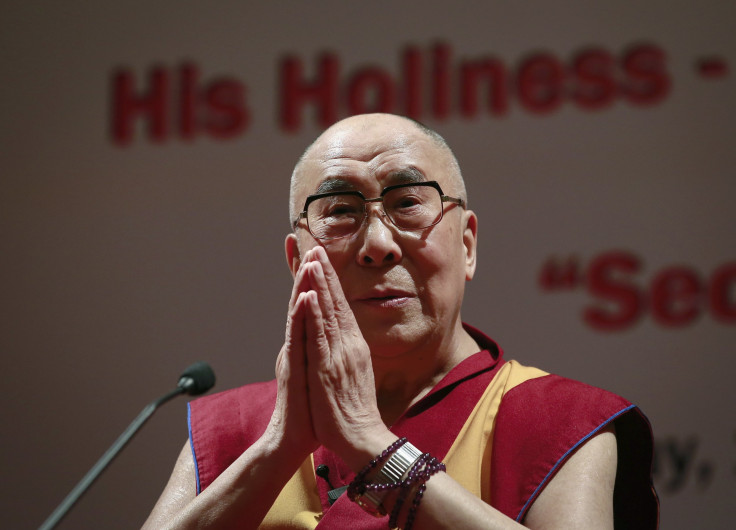Dalai Lama Says ‘Informal’ Talks In Place On Return To Tibet

The Dalai Lama said Thursday he was participating in informal talks with the Chinese government to make a pilgrimage to Tibet after more than 50 years in exile.
The announcement was made during a brief interview he gave in his temple in the Indian town of Dharmsala ahead of the 25th anniversary celebration of his Nobel Peace Prize. The 79-year-old Dalai Lama was forced to flee Tibet in 1959 after a failed uprising took place against Chinese Communist rule.
"It's not finalized, not yet, but the idea is there," the 79-year-old told Agence France Presse. "Recently, some Chinese officials -- for example, the deputy party secretary in the autonomous region of Tibet -- he also mentioned the possibility of my visit as a pilgrimage to that sacred place," he added.
The talks have been taking place for the past two weeks, prompted by an interview the Dalai Lama gave the German newspaper Welt am Sonntag on Sept. 9 where he said there was no need for him to have a successor, the Wall Street Journal reports. This put the Chinese government in a precarious position. They view the Dalai Lama as a dangerous separatist who can challenge their sovereignty in Tibet. In the past, they have asserted authority over senior Iamas (high priests) – a move that Tibetans fear will split Tibetan Buddhism.
"If [the Chinese] defy the Dalai Lama's pronouncement and declare a Dalai Lama, Tibetans won't accept the person they appoint," Robert Barnett, a Columbia University Tibet specialist, told the Wall Street Journal. "And if they don't appoint one, they will be seen as acting on the Dalai Lama's authority, which they don't want."
Chinese Foreign Ministry spokeswoman Hua Chunying responded to the Dalai Lama’s comment on Sept. 10 by reaffirming that “the title of Dalai Lama is conferred by the central government, which has hundreds of years of history. The [present] 14th Dalai Lama has ulterior motives, and is seeking to distort and negate history, which is damaging to the normal order of Tibetan Buddhism."
As of Sept. 18, relations between the Dalai Lama and China appeared to be improving. On Thursday, the Dalai Lama said he welcomed comments by China's President Xi Jinping that emphasized the importance of Buddhism in Chinese society.
"This is something very new, a Communist Party leader saying something about spirituality," he said. Last month he described Xi as "more open-minded" than his predecessors.
The Dalai Lama, who had a close relationship with Xi’s father before he was exiled, commended the leader for his recent crackdown on corruption.
"These things show he [Xi] is approaching these problems more realistically," he said.
© Copyright IBTimes 2025. All rights reserved.






















